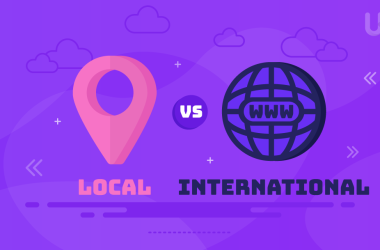In the changing search engine optimization environment, domain history is generally underappreciated from most website owners’ and digital marketers’ viewpoints. Having the ability to know the domain history might mean obtaining valuable insight into its performance, reputation, and other information connected with SEO potential impact.
In this article, we outline the significance of domain history in SEO and how to conduct a domain history lookup that will help increase your website’s visibility and credibility.
What is Domain History?
Domain history combines all the activities that a domain name has participated in, such as previous owners, changes in registration details, the content of the website, and historical SEO performance. In other words, it is like a domain’s life history or biography elaborating on each major incident that has happened since its creation. This may include:
- Registration dates and amendments
- Previous website content and themes
- Ownership transfers
- Hosting Details
- Search engine rankings and penalties
- Backlink profiles
Knowing a domain’s history can facilitate an informed decision-making process for website owners when buying or managing a domain. This ensures that they stay prepared for issues that may impact their search engine optimization efforts.
The Importance of Domain History in SEO

Reputation and Credibility
Search engines such as Google love a site for its trust and credibility. If the domain is clean, with no spamming activities or penalizations, search engines will consider it trustworthy. In contrast, one with black hat SEO practices, spam, or high flux in ownership may struggle to build credibility and rank well in search.
Backlink Profile
A domain’s backlink profile is the record of all links from other websites to it, which will significantly influence its potential SEO performance. By looking through domain history, you would be able to eliminate any toxic or spammy backlinks that could have damaged your ranking on the website. In addition to having a view of the quality and relevance of past backlinks, you can build a much more robust strategy for link building ahead.
Previous Content and Themes
Knowing what kind of content was previously hosted on a domain hosting may give insights into its current and future SEO potential. For instance, even if the domain had good-quality content associated with your current theme, it would have residual benefits for SEO. However, more effort is necessary when the domain is associated with irrelevant or poor content.
Search Engine Penalties
These penalties can be due to a variety of reasons, such as manipulative SEO practices or rogue hosting. Such penalties can drastically affect the visibility and ranking of a website. Knowing this information through a domain rating lookup will enable you to correct the penalties imposed in the past by disavowing harmful links or enhancing the quality of your content.
Ownership Changes
Very high rates of change in ownership may signal to search engines and users that the domain is unstable. A general stable ownership history tends to prove that a domain is reliable and safe. Knowing who has owned a domain in the past will help estimate what stability the domain retains and its consequences on SEO.
Build A Perfect Foundation For Your Online Success
Ready to take control of your website’s SEO with a domain that has a clean and powerful history? Visit UltaHost today to explore our extensive selection of premium domains. Don’t leave your SEO to chance—start building your online presence today!
How to Perform a Domain History Lookup
By running a domain history lookup, you can easily get an idea of what a domain has been up to in years past. Here are some steps and tools that can be used to do a complete domain history analysis:
WHOIS Lookup
WHOIS databases contain all information regarding domain name registration, such as who owns the domain, the date of registration, and contact information. Lookups are accomplished by tools such as ICANN WHOIS, WHOIS.net, or DomainTools. These databases provide information on important elements related to a domain’s history. You will be able to track ownership changes over time from these records and get more information about the longevity and stability of the domain.
Wayback Machine
The Wayback Machine is a facility provided by the Internet Archive, under which you can view various snapshots of websites taken in the past. Thus, from there, after entering any domain into the Wayback Machine, you will be introduced to the evolution of the website with time: its content, design, and themes. This tool becomes particularly helpful for finding out what kind of content might have been earlier hosted on a domain and if it is relevant or useful for your current SEO strategy.
Ahrefs and SEMrush
Domain history analysis through SEO tools like Ahrefs and SEMrush will provide information on backlink profiles, organic search performance, and historical rankings. Advanced tools of this kind will further help reveal whether there were any specific issues with SEO regarding a domain earlier—be that toxic backlinks or penalizations—and learn about the overall SEO health of the domain. So, you will be better positioned to make informed decisions on buying or managing a domain and develop a more effective SEO strategy.
Google Search Console
Suppose you have access to a domain’s Search Console account. In that case, you can review the domain’s search performance history, including all trends of organic traffic, problems in indexing, and even data about manual actions from Google’s side. This information can be used to comprehend a domain’s SEO performance and further help recognize areas that require improvement.
Domain History Check Services
Specific online services are oriented to providing highly detailed domain history reports. DomainTools’ Domain History, HosterStats, and Whoisology give a deep overview of past domain activities, showing changes in ownership, hosting history, and historical WHOIS lookup records. Such services will help build a full picture of a domain’s history and further assist you in making informed decisions.
Best Practices for Leveraging Domain History in SEO

Due Diligence Before Purchasing a Domain
Before acquiring a new domain, conduct a thorough domain history lookup to ensure it has a clean and positive history. Look for any red flags, such as spammy backlinks, previous penalties, or frequent ownership changes. Moreover, a domain with a solid history is more likely to provide a strong foundation for your SEO efforts.
Regularly Monitor Your Domain’s History
Even after purchasing a domain, one needs to monitor its history and performance. One can monitor backlink changes, search rankings, and organic traffic using tools such as Google Search Console, Ahrefs, and SEMrush. By being watchful of exactly the same things, you will be able to identify and fix problems affecting your SEO performance proficiently.
Disavow Toxic Backlinks
If harmful or spammy internal links appear in your domain historical lookup, use Google’s Disavow Tool to ask search engines to ignore them. Disavowing bad backlinks can improve your domain’s credibility and also avoid possible penalties.
Focus on Quality Content
Creating high-quality, relevant, and evergreen content is crucial for SEO success regardless of a domain’s history. Focus on providing valuable information to your audience and aligning your content with search engine guidelines. High-quality content can help you build authority and improve your domain’s search rankings over time.
Maintain a Stable Ownership and Hosting Environment
Stability is key to building trust with search engines and users. Aim to maintain a stable ownership and hosting environment for your domain. Avoid frequent changes in ownership or web hosting providers, as these can signal instability and also negatively impact your SEO efforts.
Conclusion
The need for domain history in SEO is becoming highly essential, as it speaks volumes to website credibility, backlinks, and performance in search engines. Knowing what domain history is and how to perform a domain history lookup will help the website owner or any digital marketer with critical decision-making and developing effective SEO methods. You can build an extremely good platform for placing your website on firm ground for long-term competitive SEO by regularly keeping track of and maintaining a squeaky-clean domain history.
Combine a clean domain history with UltaHost’s SEO Hosting for a robust foundation and superior performance. This synergy will provide a solid foundation and superior hosting environment, ensuring long-term success for your website’s SEO strategy.
FAQ
Can a domain’s previous content affect its current SEO?
Yes, past content impacts current SEO. High-quality, relevant content can retain benefits like backlinks, while low-quality content may require more effort to improve SEO.
How do past ownership changes influence a domain’s SEO?
Frequent ownership changes can signal instability, affecting trust and rankings. A stable ownership history suggests reliability and can positively impact SEO.
What are the risks of buying a domain with a bad history?
Risks include inheriting penalties, dealing with poor backlinks, and overcoming negative associations. These can hinder SEO efforts and rankings.
How does a domain’s backlink history affect SEO strategy?
High-quality backlinks boost authority and rankings, while spammy links can harm credibility and lead to penalties. Managing the backlink profile is crucial for SEO.
Can a domain with a negative history recover, and how?
Yes, recovery is possible. Disavow toxic backlinks, improve the content, address penalties, and monitor performance. These steps help rebuild credibility and improve rankings.










